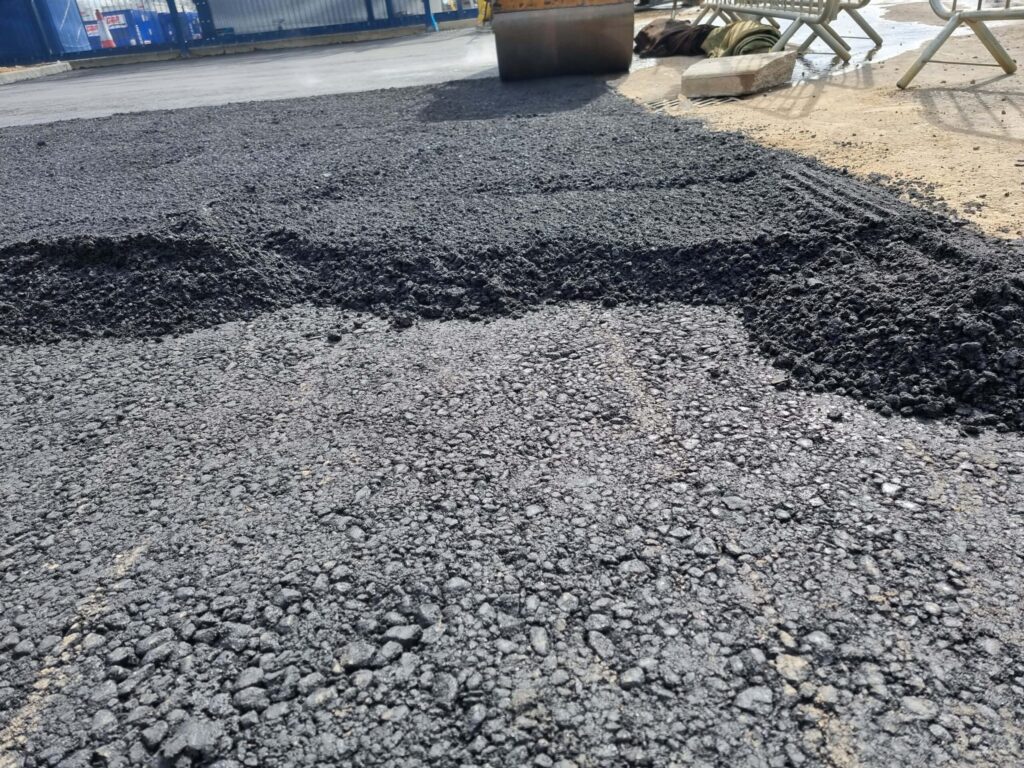The Importance of Proper Drainage in Commercial Block Paving
Introduction: Proper drainage is highly dependent on the functionality and longevity of block paving in commercial properties. At Linton Driveway Installations, we understand that while aesthetics and durability are crucial, effective drainage is equally essential for ensuring your paved areas’ long-term performance and safety. This blog post will explore why proper drainage is vital in commercial block paving and how to achieve it.
Why Proper Drainage Matters
1. Prevents Water Damage
Improper drainage can lead to water pooling on the surface of block paving, which can cause various issues, including:
- Surface Damage: Standing water can lead to erosion and damage to the block paving, resulting in uneven surfaces and potential trip hazards.
- Weed Growth: Water accumulation provides an ideal environment for weeds to grow, which can detract from the appearance of the paving and lead to increased maintenance costs.
- Freeze-Thaw Damage: In colder climates, trapped water can freeze and expand, causing cracks and damage to the blocks over time.
2. Reduces Flooding Risk
Effective drainage helps manage surface water runoff, reducing the risk of flooding on your commercial property. Directing water away from the paved area minimises the chances of water entering buildings or other critical areas, which can cause damage and disrupt business operations.
3. Enhances Safety
Standing water can pose a safety hazard, creating slippery conditions that increase the risk of slips and falls. Proper drainage ensures that water is efficiently removed from the surface, maintaining a safe environment for pedestrians and vehicles.
4. Complies with Regulations
Many local regulations and planning permissions require adequate drainage solutions in commercial paving projects. Compliance with these regulations avoids legal issues and contributes to sustainable drainage practices, which can benefit the environment.
How to Achieve Proper Drainage in Block Paving
1. Design with Drainage in Mind
Before installation, plan the block paving layout with drainage in mind. Consider the following:
- Slope: Ensure the paving has a slight slope to direct water towards drainage channels or areas where it can be absorbed.
- Drainage Channels: Incorporate drainage channels or gutters at the edges of the paved area to capture and redirect water flow.
- Permeable Paving: Use permeable block paving materials that allow water to pass through the blocks and into the ground below.
2. Choose the Right Materials
Selecting high-quality materials is crucial for effective drainage:
- Drainage Aggregates: Use appropriate aggregates beneath the paving that facilitate water flow and prevent block displacement.
- Permeable Blocks: If managing surface water is a priority, opt for permeable blocks. These blocks have built-in spaces allowing water to flow through and reducing runoff.
3. Install Proper Sub-base and Base Layers
The sub-base and base layers play a vital role in drainage:
- Sub-base: Install a well-drained sub-base of materials like crushed stone or gravel. This layer should allow water to flow through and be directed away from the surface.
- Base Layer: The base layer should be compacted and levelled to support the blocks and prevent shifting while allowing water to drain to the sub-base.
4. Regular Maintenance
Proper maintenance ensures that drainage systems continue to function effectively:
- Clear Debris: Regularly remove leaves, dirt, and debris from drainage channels and surface areas to prevent blockages.
- Inspect for Damage: Periodically check the paving and drainage system for signs of damage or wear and address any issues promptly.
Conclusion: Proper drainage is crucial for the longevity, safety, and functionality of commercial block paving. Incorporating effective drainage solutions into your paving design and maintenance practices can prevent water-related damage, reduce flooding risk, enhance safety, and comply with local regulations.
Call us on: 01223 657 698
Click here to find out more about Linton Driveway Installations
Click here to complete our contact form and see how we can help you with your driveway needs.

